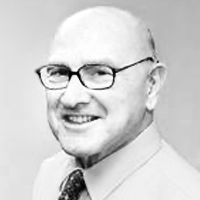Question
If a child passes the SSW but has a tremendous amount of reversals, or quick responses, etc., how do we interpret the results? Is the SSW deemed normal, and we simply state the findings? Or do we consider that the patient failed the SSW, and diagnose a fading memory or organizational deficit? Also, can we use the SSW and PS tests solely to diagnose an APD, or will the results be criticized too much? Lastly, there are norms for the SSW for a seven year old but I have been told that it is too linguistically demanding and to use other tests as supporting documentation. What do you suggest?
Answer
When people come to me for help I feel an obligation to give them the right answer (or at least the most accurate answer I can). I use the SSW, Phonemic Synthesis and Speech-in-Noise tests. I have rules and safeguards but the bottom line is getting it right.
- My first rule is if the SSW Total NOE (Number of Errors Analysis) score is positive and there is support from the other tests then that would indicate an APD.
- On occasion the total score is not significant but the LC condition is (at a recent AAA meeting Jay Hall reported that he used failure on the RC or LC condition in his research as the test of SSW significance). I feel just as comfortable as long as there is good support from the other tests for APD.
- However, we do not have a 'gold standard' for APD (just like many other disorders) but I would want to make sure that the test results whatever they are match the related problems in real life. If the parents/teachers say the child has difficulty in sequencing or keeping information straight or carrying out commands in order and the SSW and/or the PS have reversals that would give me the reassurance I need to accept these findings.
- The long-term feedback that helps me to know that I am doing a good job is that afterwards if the child is seen for therapy to address these problems and they do improve then I feel that a good diagnosis was made.
Another question was whether SSW and PS tests are enough. I also do Speech in Noise and find it very helpful and it is a direct measure of what most people are complaining about. A fine therapy for this is now available for this problem that Robert Sweetow developed (see www.neurotone.com).
What about just reversals? It would be quite surprising that reversals were the only abnormality on the battery. If so I would be suspicious of the finding. If there were other APD indicators on the tests, then this would be an exception to the rules above. Reversals are not calculated into the Total SSW or the LC condition, so in this rare event it would still be a significant finding. If there is support for your test results from the family/school information then I would say that there appears to be an APD with ORG as the major characteristic, but that X and Y were also noted.
Finally, is the SSW test too linguistically demanding for those under 7 years. If a test has norms that go down to 7 or below 7 then it was not too linguistically demanding for that age group for the given norms. In some cases I have given the SSW to children as young as 4 years of age not knowing if they were normals or not (FYI, 4 & 5 year olds get only a half test). In time I got to test some of them again because of concerns for APD and indeed APD was found and therapy given. After therapy the battery was re-administered and with major improvements reflecting the specific therapies. So 4 years old was not unreasonable for these children, so you can be sure that 5 and 6 year old kids can do just fine. The last two issues of SSW Reports address this age issue. Combining over 900 children that three audiologists tested for APD in the last several years; more than 25% of them were under 7 years. Jay Lucker points out that those under and over 7 fail his battery of APD tests by roughly the same percentages. He points out if the young children could not handle the tests because of linguistic or other reasons we would see many more of them failing the AP tests, but that was not the case.
Jack Katz has been involved with the study of APD for more than 40 years. He has served as clinician, researcher, writer and teacher of this subject. He has developed diagnostic tests and therapy procedures that are widely used in the US and elsewhere. Eighteen years ago he formulated and researched (with others) an APD category system that has become known as the 'Buffalo Model'. He retired from the University at Buffalo in 2002 and is now devoting much of his time to a private practice providing high quality diagnostic and therapeutic Auditory Processing services in the Kansas City area.

